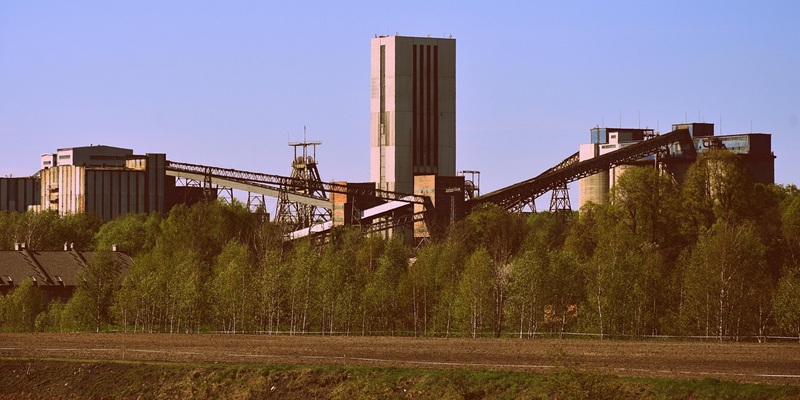Clean technology, commonly referred to as cleantech, has emerged as a transformative force in the global economy. As the world increasingly prioritizes sustainability and environmental responsibility, cleantech innovations are reshaping how traditional industries operate. This transition affects not only the environmental footprint of these industries but also their efficiency, cost structures, and long-term viability.
From energy and transportation to manufacturing and agriculture, cleantech is redefining business norms. But what exactly is cleantech, and how does it intersect with time-tested industrial practices? More importantly, how are legacy industries responding to this wave of innovation?
What Is Cleantech and Why It Matters in the Modern Industrial Landscape
At its core, cleantech encompasses products, services, and processes that reduce or eliminate negative environmental impacts through significant energy efficiency improvements, the sustainable use of resources, or environmental protection. Unlike traditional technologies, cleantech focuses not just on output but also on minimizing ecological harm.
The importance of cleantech cannot be overstated. Rising global temperatures, increasing levels of pollution, and depleting natural resources have pushed governments, businesses, and consumers toward greener alternatives. Consequently, traditional industries are under pressure to adapt or face obsolescence.
How Cleantech Is Disrupting the Traditional Energy Sector
The energy sector has long been dominated by fossil fuels such as coal, oil, and natural gas. However, cleantech has ushered in renewable energy solutions like solar, wind, hydro, and geothermal power. These sources are not only cleaner but increasingly cost-effective.
For instance, solar power, once considered expensive and unreliable, now rivals conventional electricity prices in many regions. Improved battery storage and grid technology further enhance the reliability of renewables. As a result, energy companies are investing heavily in clean energy portfolios, rethinking their infrastructure, and reducing dependence on carbon-intensive fuels.
Importantly, this disruption isn’t merely theoretical. Major oil and gas corporations like BP, Shell, and Total have allocated billions toward clean energy research and renewable investments. Although fossil fuels still dominate the energy landscape, the tide is clearly shifting.
Manufacturing and Industrial Processes: Cleaner, Smarter, and More Efficient
Cleantech has also made notable inroads into the manufacturing sector. Traditionally, manufacturing processes were energy-intensive, resource-heavy, and waste-generating. However, the integration of smart technologies and green innovations is altering that dynamic.
For example, advanced sensors and AI-driven analytics allow factories to optimize energy usage, reduce waste, and streamline operations. Moreover, 3D printing reduces material waste, while clean production methods—such as waterless dyeing in textiles—are becoming more common.
Additionally, sustainable materials are replacing plastics and metals in various applications. Companies are now choosing bio-based composites or recyclable materials, reducing their environmental footprint without sacrificing product quality.
The Transportation Industry’s Green Turn
Among all traditional sectors, transportation perhaps faces the most significant pressure to decarbonize. Internal combustion engines have long ruled the road, but cleantech is accelerating the shift toward electric and hybrid vehicles.
Electric vehicles (EVs), supported by innovations in battery storage and charging infrastructure, are no longer fringe products. Companies like Tesla, BYD, and traditional automakers such as Ford and GM have introduced entire EV lineups. Governments worldwide are offering incentives and even setting deadlines for phasing out gas-powered cars.
Beyond cars, cleantech is also influencing public transportation, aviation, and shipping. Electric buses, hydrogen-powered trains, and even biofuel airplanes are in various stages of development and deployment.
This transition is not just about reducing emissions. Electric and hybrid engines offer greater energy efficiency, lower maintenance costs, and a quieter ride—making them a smart business decision as well.
Agriculture Embraces Cleantech to Feed the Future Sustainably
The agricultural sector is perhaps one of the most surprising adopters of cleantech. With the global population expected to exceed 9 billion by 2050, sustainable food production is a top priority.
Vertical farming, hydroponics, and precision agriculture are just a few cleantech innovations transforming how food is grown. These methods reduce land use, water consumption, and chemical inputs. Precision agriculture, in particular, uses drones, IoT devices, and AI to deliver targeted irrigation, fertilization, and pest control. Certain companies like Bug Shockers are utilizing this technology, along with human & pet-safe chemicals to maximize safety & efficiency.
Furthermore, clean biotechnology is being employed to create drought-resistant crops, reduce methane emissions from livestock, and improve soil health through natural fertilizers and composting.
The result is not only higher yields but also more sustainable and ethical farming practices.
Financial and Economic Implications of Cleantech Integration
As cleantech reshapes industries, it also alters economic models. Traditional industries must weigh the cost of innovation against the risk of stagnation. While integrating cleantech often requires upfront capital investment, it typically leads to lower operating costs and new revenue streams.
Investors are taking note. Green bonds, ESG (Environmental, Social, and Governance) investments, and impact investing have surged. Financial markets now reward companies that adopt sustainable practices, which encourages further adoption.
Additionally, regulatory pressures are mounting. Carbon pricing, emissions trading schemes, and environmental compliance standards make cleantech not just optional but necessary for legal and financial survival.
Challenges Faced by Traditional Industries in Adopting Cleantech
Despite the clear advantages, transitioning to cleantech isn’t without its hurdles. Initial costs can be high, particularly for small and medium enterprises. Moreover, integrating new technologies often requires retraining workers, upgrading infrastructure, and navigating regulatory uncertainty.
Another challenge is the intermittency of renewable energy sources, which can pose problems for industries with constant power demands. However, this is being addressed through innovations in energy storage and smart grid technologies.
There is also resistance to change. Long-established companies may be reluctant to abandon familiar processes. Yet, as consumer demand shifts and environmental regulations tighten, maintaining the status quo becomes less viable.
How Traditional Industries Can Strategically Adapt to Cleantech
Adapting to cleantech doesn’t have to be disruptive. In fact, gradual, strategic integration can make the transition smoother. Industries should start by conducting sustainability audits to identify areas for improvement. Partnering with cleantech firms can accelerate innovation and minimize risks.
Employee training is also essential. Workers need the skills to operate new technologies effectively. Governments and educational institutions play a crucial role by providing cleantech-focused training programs.
Another smart approach involves leveraging data analytics. Real-time monitoring can identify inefficiencies, optimize resource usage, and predict maintenance needs—reducing both costs and downtime.
Lastly, open communication with stakeholders builds trust and secures buy-in, which is vital for long-term success.
Conclusion
The impact of cleantech on traditional industries is profound, and it’s only just beginning. While the shift can be challenging, it also brings immense opportunities for innovation, efficiency, and sustainability. Traditional industries that embrace cleantech are more likely to thrive in a fast transforming space.
Rather than seeing cleantech as a threat, forward-thinking companies recognize it as a competitive advantage. By investing in cleaner processes, smarter systems, and greener strategies, they’re not only protecting the planet but also securing their future.





























